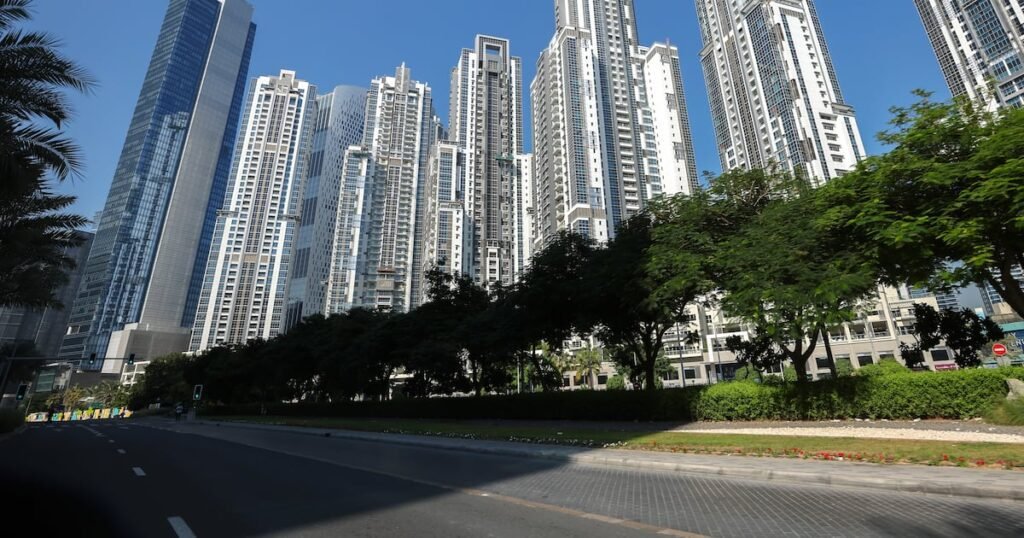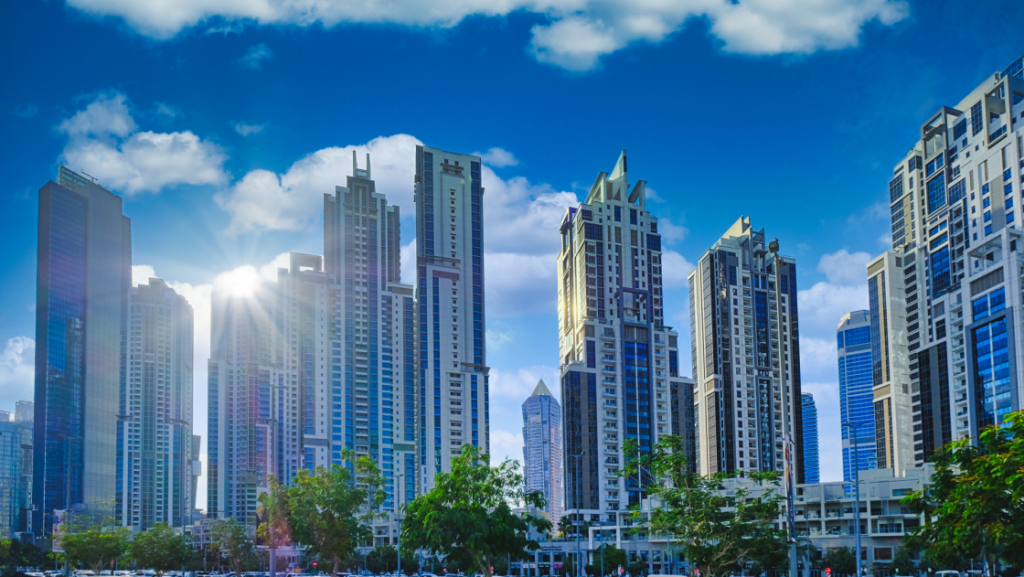Dubai housing demand is hitting new highs as more than 1,000 people move to the city every single day in 2025. This rapid growth in population is pushing the real estate market to expand at a fast pace, leading to a surge in property prices, new developments, and rental competition.
This record-breaking influx in the first quarter of 2025 shows that Dubai continues to be one of the world’s most attractive places to live, work, and invest.
Why Are So Many People Moving to Dubai?
Several reasons are fueling this major migration to the emirate:

- Job opportunities: Dubai’s growing economy and thriving sectors like tech, tourism, and finance attract skilled professionals from around the world.
- Tax-free income: The lack of personal income tax makes Dubai a favorite for entrepreneurs and employees alike.
- High quality of life: Modern infrastructure, world-class healthcare, and a safe environment make it ideal for families.
- Golden visa program: The long-term residency options encourage professionals and investors to stay longer.
Experts believe the city’s clear vision for development and welcoming policies make it a magnet for international talent.
Dubai Housing Demand 2025: Property Prices on the Rise
The sharp rise in residents is directly impacting property prices. According to data from property portals and real estate firms:
- Rental rates in popular areas like Downtown Dubai, Dubai Marina, and Business Bay have increased by 10–25% in the first quarter alone.
- Villa and townhouse communities, especially in the suburbs, are seeing strong demand from families looking for more space.
- Off-plan property sales are booming, with developers launching new projects almost every week to keep up with the rising interest.
Industry insiders say that the strong Dubai housing demand in 2025 is putting pressure on both buyers and renters. While this might pose challenges for affordability, it also reflects the strength of Dubai’s property market.
New Developments to Meet the Rising Demand
To match the city’s growing population, developers are moving quickly. Some of the notable trends include:
- Luxury apartments and branded residences: Developers are partnering with luxury brands to build high-end towers.
- Affordable housing communities: Areas like Dubailand and Dubai South are seeing more mid-range housing projects to accommodate young professionals and families.
- Smart homes and sustainable buildings: Energy-efficient homes and smart tech integration are now part of the standard offering.

The government is also playing a role by ensuring infrastructure, transportation, and amenities are ready to support this growth.
How the Influx Is Changing the Rental Market
Dubai’s rental market is evolving rapidly:
- Tenants are exploring emerging communities like Jumeirah Village Circle (JVC), Al Furjan, and Mirdif to find better value.
- Landlords are upgrading units or adding services to stay competitive.
- Property management companies are expanding operations to deal with rising demand.
Many people who moved to Dubai in early 2025 say they are still looking for stable rental options, which shows that demand is likely to remain high throughout the year.
What This Means for Investors
For real estate investors, Dubai housing demand in 2025 offers big opportunities:
- High rental yields: With rents going up, investors can earn solid returns, especially in short-term rentals for tourists and digital nomads.
- Capital appreciation: Property values are expected to climb as supply tightens.
- Strong liquidity: The active market allows easy buying and selling of properties.
Experts advise investors to focus on up-and-coming areas where prices are still reasonable but expected to grow.
Government Support Strengthens the Real Estate Ecosystem
The Dubai government continues to support the housing sector with:
- Transparent regulations: Easy property transactions and secure ownership laws for foreigners.
- Visa reforms: Including the 10-year Golden Visa and residency for property investors.
- Smart city infrastructure: Public transport upgrades, sustainability measures, and digital services make living more convenient.
These efforts ensure that the surge in residents translates into long-term growth, not just a short-term boom.
Dubai’s Real Estate Market Remains Resilient
Despite global economic uncertainties, Dubai’s property market has remained strong. The first three months of 2025 have already set new records in:
- Property transactions
- Foreign direct investment
- Rental occupancy levels
Real estate consultants believe the emirate has built a sustainable growth model. With solid demand, expanding infrastructure, and a supportive government, Dubai is well on its way to becoming one of the top property markets in the world.
Challenges Ahead: Can Supply Keep Up With Demand?

While the outlook is mostly positive, challenges remain:
- Developers need to build fast but maintain quality.
- Infrastructure must grow in step with new communities.
- Policies must ensure that housing remains accessible for middle-income groups.
Still, the overall confidence in Dubai’s market remains high. Stakeholders are optimistic that these challenges can be managed with smart planning and cooperation between public and private sectors.
Conclusion: Dubai’s Housing Boom Is Just Getting Started
With over 1,000 new residents arriving daily, Dubai’s property market is experiencing a historic transformation. The strong Dubai housing demand in 2025 reflects the city’s global appeal, dynamic economy, and lifestyle advantages.
Whether you’re a homebuyer, renter, or investor, Dubai is offering more choices—and more competition—than ever before. The coming months will reveal how well the city can keep pace with its fast-growing population, but one thing is clear: Dubai’s real estate journey is far from over.
Read More: Dubai Opens Real Estate Market to UAQ FTZ Companies













